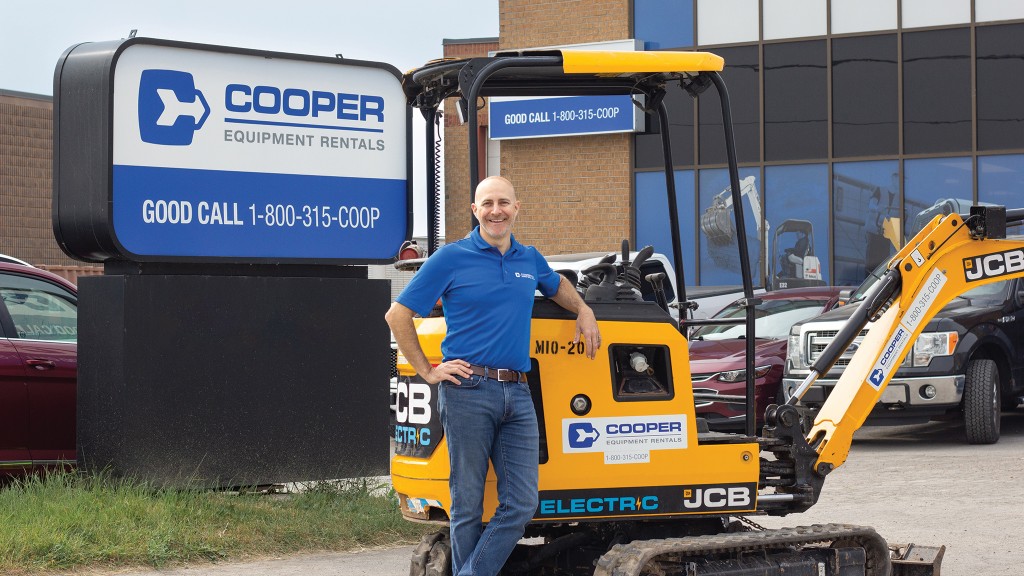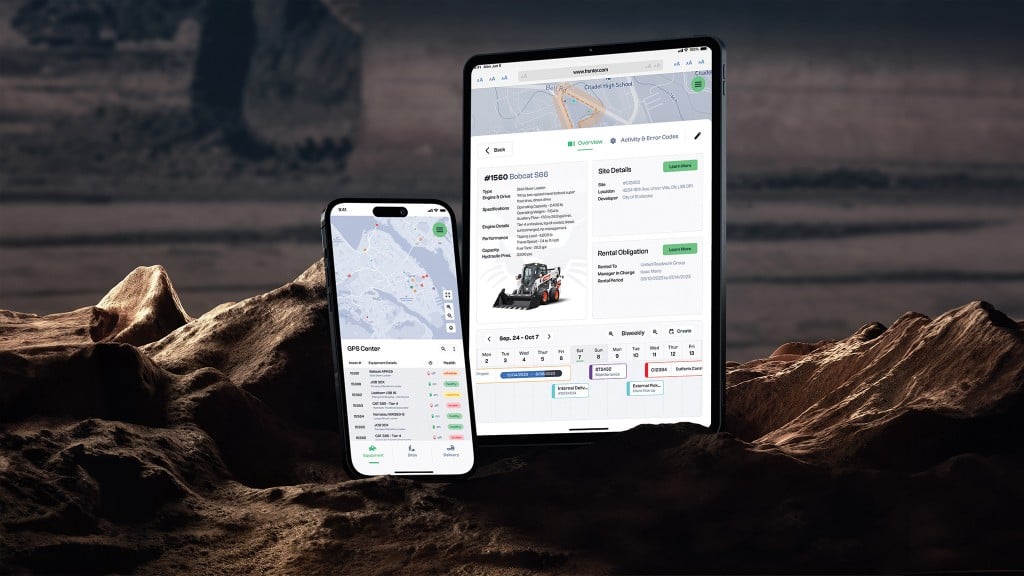Advancements in compact equipment and fuel options help the construction industry move toward a greener future

When the first electric cars came to market, they were pocket-sized and not practical for most uses. Then brands like Tesla entered the scene – cars that were luxurious and environmentally friendly but didn't compromise on performance (for those who could afford them). Today, the development of battery-operated SUVs and pickups is helping more people see that going electric does not mean compromising the efficiency and power of your machine. The construction industry has followed a similar trickle-down effect. At first, we saw small tools and the odd mini excavator, but there was limited use of an electric machine for the average contractor. Today, battery tech is evolving quickly and it's leading to more diverse electric equipment.
While many contractors have yet to try electric equipment, there's no denying the winds of change are here. Some are waiting for others to "work out the kinks" before they kick any tires; others aren't going to make a change until it's mandated. Concerns including battery charge times, equipment effectiveness, and cost are real hurdles. But, one step at a time, the shift is underway. We can be confident that the short- to medium-term future is electric. From excavators to battery-powered tools and solar generators that last all day, the industry is seeing an influx of equipment that not only performs as well as its diesel counterpart, but is reducing carbon emissions, lowering fuel costs, and creating lasting sustainability in the construction industry.
Electric equipment keeps getting better
There's still some concern with the practicalities of electric equipment – like initial cost, run times, and charging. Equipment manufacturers know that everyone benefits if they can address those concerns, so year after year we're seeing them bringing better power and performance to the market.
Let's take the excavator – ubiquitous to nearly every construction site and one of the first compact machines to go electric. The 2-tonne electric excavator from JCB is still one of Cooper Equipment Rentals' most rented pieces of electric equipment to this day. But now customers are looking for more and, as a result, the whole industry is starting to scale up. Machines like the new 3-tonne excavator from Bobcat are helping fill that gap. Their advanced lithium-ion battery technology means they are performing as well – or better – than their diesel-powered equivalents with batteries providing significantly more hours of continuous runtime than earlier models.
Electric mini track loaders offer reduced noise, minimal maintenance, and zero emissions, making them easier to use in applications like hospitals, schools, and municipalities that have strict regulations. The battery-powered loader from Cratos runs on lithium-ion batteries with 100 percent fume-free power. Its compact size can fit through standard sized doors. We're also seeing growing popularity of battery-powered backpack concrete vibrators offered by brands like Wacker Neuson, which give workers flexibility during concrete consolidation. Remote areas can be accessed without having to route a power supply and the batteries' high-performance delivers enough energy for a whole workday. To top it off, the operator is not exposed to any heat, fumes, engine noise, or emissions.
Improving technology is driving acceptance of electric equipment, but cost is still a key concern
Electric equipment comes with a bigger upfront cost, there's no denying it, but in the long run the investment pays off. If you're unsure about committing to an electric machine, the benefits of renting are twofold: You get to try the equipment before you buy, and you don't have to worry about maintenance costs. At the same time, your fuel savings could be significant.
Switching to electric not only has environmental benefits by reducing emissions, but also reduces noise pollution as electric machines generate a fraction of the noise of their diesel-powered equivalents. Many municipalities now have bylaws that prohibit noise at certain times of the day. With electric, contractors are able to operate outside of those hours, increasing productivity and getting jobs done faster. For most contractors, once they experience these benefits for themselves they are able to make better informed decisions about the type or size of electric machine that is best suited for the application they are working in. We see many customers want to make the switch to stay competitive with a growing number of public and private companies mandating more sustainable business practices.
Battery-electric isn't the only emissions reduction solution
As equipment evolves, fuel is evolving too. Diesel still remains the go-to fuel source for traditionally powered equipment, but we are starting to see contractors look to sources like biodiesel, which is comparable in cost. But don't go switching out your fuels without doing your homework – check with your manufacturer first. In many cases, biodiesel can be used without having to flush out existing fuel. Right now, biodiesel's big limitation is its sensitivity to cold temperatures; it has a six-month window in most of Canada, from roughly April to October.
In the future we may see more hydrogen-fuelled engines, but we are still a long way off from hydrogen as a reliable and cost-efficient alternative to diesel.
There's also a growing market around hybrid power solutions for contractors to run their office trailers. The latest models are battery-diesel powered and help solve the problem we see so often – trailers running off generators that are too big. These solutions are bridging the gap between customers who are hesitant to try a battery-only solution and those who want to avoid a diesel generator running an inefficient load.
How to charge electric machines and power job sites
While you can charge many small machines with a common household outlet, larger equipment needs more – and the more power you can put into your electric machine, the faster it will charge. Training your workers to operate and charge electric equipment is important for the success of the machine. Any time there is a pause in the day the batteries should be charging. It's also best practice to charge batteries from mid-level to full, as opposed to draining the battery completely before recharging.
In the short-term, we can expect to see a move toward battery banks; their sole purpose is to provide remote charging capabilities. While industrial generators are great for powering large operations, they're inconvenient to transport and undermine emission-cutting efforts. Portable battery banks or power stations will help fill the gap for temporary energy sources for compact equipment. Building an electric infrastructure involves a lot of moving parts. Support from your rental partner that includes the right-sized equipment, generators, job site data, and charging stations is one way to stay ahead of the game.
Global construction company looks to green solutions to meet net-zero emissions targets
For global construction company Multiplex, finding an equipment partner that aligns with its innovative sustainability goals is key to success. Multiplex set ambitious regional and global targets to lead the construction industry. This is the first construction company in North America to set a science-based target aligned with the Paris Agreement and one of its key action areas is to have zero on-site emissions by 2030. This includes 50 percent of on-site equipment powered by renewables including electrification, green hydrogen, or biofuels from waste. In 2017, Cooper Equipment Rentals started working with Multiplex, and we now provide both electric and traditional diesel-powered equipment for job sites across the GTA.
When Multiplex started working on the OmniaBio B site in Hamilton, Ontario, the company saw an opportunity to pilot the use of an alternative fuel and renewable energy sources like biodiesel. This ultra-fast-tracked project is the first component of the master plan for the McMaster Innovation Park in Hamilton and is designed with a focus on sustainability and the environment at its core.
"We reached out directly to Cooper to try and understand what type of opportunities were available for biodiesel. We knew they would be the perfect partner for this, and they jumped at the opportunity to get involved. They provided us with the right guidance and advice to make the transition a smooth one," comments Anya Barkan, Multiplex sustainability manager.
Biodiesel was provided by 4 Refuel. Biodiesel is a renewable energy source produced from organic matter or biomass such as corn, sugar, vegetable oils, or waste feedstocks. Biodiesel also offers a CO2 emissions reduction of 15 percent when compared to traditional diesel, which can help companies like Multiplex in reducing GHG emissions.
Our team also helps Multiplex track monthly fuel usage, a key part of Scope 1 emissions that fall under its Science Based Target Decarbonisation Roadmap. As a company on a journey to provide more sustainable solutions to customers, we're thrilled to partner with Multiplex – we're collaborating to make construction sites greener without compromising work quality.
"The path Multiplex has chosen is really inspiring – they're willing to try something new and they want to measure the impact of the changes they're making. We're looking forward to helping them strike that balance between productivity and environmental goals," says Scott MacKinnon, director of sales for Cooper Equipment Rentals.
Innovation is rarely a direct and singular path. Electric equipment will continue to evolve, and we'll see biodiesel and other alternative fuel adoption continue to grow – especially when it's an easy substitution for fossil fuels.
Rod Lentino has over 15 years experience in the equipment rental industry and is currently the director of rental at Cooper Equipment Rentals, one of the fastest growing rental businesses in Canada.
Company info
255 Longside Dr.
Unit 103
Mississauga, ON
CA, L5W 0G7
Website:
cooperequipment.ca
Phone number:
1-877-329-6531



